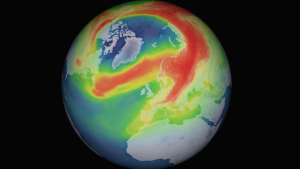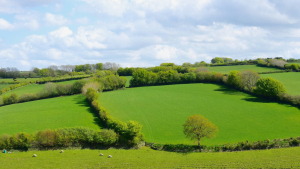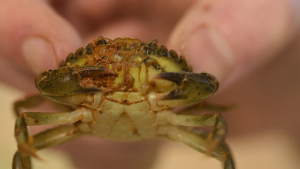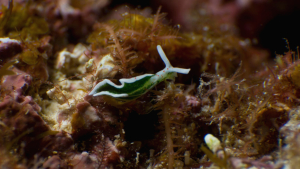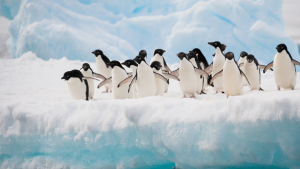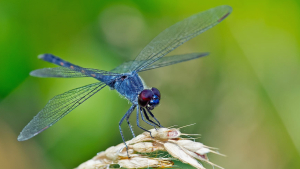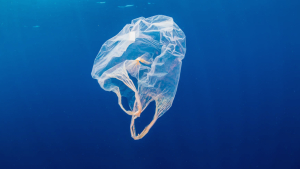Whether controversial palm oil or cheap meat with a questionable climate balance – it is widely known that certain foods are not good for the CO2 footprint. But how does the average diet of Germans affect biodiversity? A new study by the environmental organization WWF sheds light on the footprint we leave with our diet in terms of diversity of all life in the countryside. The result: What we eat has a major impact on biodiversity, not only here in Germany, but also in distant regions.
The so-called biodiversity footprint is calculated in a relatively complex way. The survey, which WWF has compiled together with corsus – corporate sustainability GmbH, is based on an impact assessment: for example, the quality of the areas used for food production was assessed and compared with the quality of the natural vegetation originally present on the area. The difference in quality – the biodiversity difference – is now called the footprint and is evaluated taking into account various factors. Roughly speaking, it is about how much our diet leads to the fact that natural areas with their animals and plants are adversely affected in Germany and around the globe.
In numbers, the concrete effects of the consumption of different foods represent the data according to the data: by far the largest share of footprint, with 77 percent, have animal products such as meat, sausage, eggs or cheese. However, only 23 percent result from the consumption of plant foods such as fruit, vegetables, grain or nuts.
In the case of animal products, it is above all the large area requirement for feed that has a negative impact. "Everything we have on our plate or buy is produced somewhere and needs space accordingly," said Tanja Dräger, nutrition expert at WWF Germany, who on the one hand is dependent on the benefits of an intact nature, but on the other hand endangers it himself. This, the study summarizes, results in the following: the higher the proportion of plant-based foods in the diet, the smaller the biodiversity footprint that is caused worldwide.
Experts have long seen the biological diversity in the downward trend: the World Biodiversity Council (IPBES) warns that around one million animal and plant species could extend in a few decades. According to the expert committee, our nutritional systems play an important role here. They are responsible for 70 percent of the loss of biological diversity in the country and for 50 percent in rivers and lakes.
Using fungal proteins to combat forest loss
If only 20 percent of the global beef consumption in the next 30 years were omitted to a meat replacement called Mykoprotein, both the design and the associated carbon emissions could be halved. Methane emissions would decrease by 11 percent. This emerges from a mathematical model by Florian Humpenöder and his colleagues from the Potsdam Institute for Climate Impact Research. They published their results in the "Nature" journal. The model takes into account the estimated increase in population growth, income and the demand for cattle between 2020 and 2050. The exchange of 50 percent of the beef consumed per person through mykoprotein would lead to a more than 80 percent reduction in design and emissions, and the Prevent replacement of 80 percent of beef about 90 percent of the forest loss.
In addition to the current state, the WWF survey also shows how a changed diet of Germans could benefit biological diversity. With a flexitarian diet, i.e. a limited consumption of animal products, our biodiversity footprint could be reduced by a total of 18 percent worldwide - with a consistent vegetarian diet by a whole 46 percent, with a vegan diet by 49 percent. Nature in Brazil would benefit particularly greatly from a corresponding rethinking of the food plan – above all, because then much less area would be needed for the cultivation of soy as feed.
Whether bees, lignite or butterflies in Germany, orangutans in Malaysia or ant bears in Brazil: The species that could be protected by more conscious nutrition are numerous, emphasizes Dräger. »In this respect, the potential is great to contribute to the protection of habitats if you reduce the consumption of animal products. And equally it serves your own health. ”The study should create awareness of what can cause one's own food consumption.
The results of a research team led by Ann-Katrin Betz from the Julius-Maximilians-Universität Würzburg suggest that people in restaurants are more likely to resort to climate-friendly food if it is also marked as such in the menu, i.e. if they are made aware of the benefits for the environment through their consumer behaviour. In the survey published in the journal »PLOS Climate«, 256 people chose from various hypothetical menus. It showed that they chose more climate-friendly dishes when carbon labelling was in place and when the components were more likely to consist of low-emission options.
Nevertheless, Dräger stresses that the burden cannot be placed on the shoulders of consumers alone. "Politics and economics are in demand here." In concrete terms, the WWF is calling on the federal government to adopt a nutrition strategy by 2023 and the path to a sustainability tax based on its findings. "We are currently seeing that some plant-based foods or meat substitutes are more expensive than meat itself," criticizes Dräger. In addition, the domestic cultivation of fruits, vegetables, nuts and legumes must be expanded.
Antje Risius, who researches sustainable nutritional styles at the University of Göttingen, summarizes what everyone has to do to protect biodiversity and what politics and business: "Above all." The efficient use of the resources is decisive. A plant -oriented orientation of nutrition enables health, economic and environmental aspects to combine.
For consumers, however, this means that information and products must be made available. "Of course, those who set the framework conditions – i.e. politics and business – are in demand first," says Risius. Creating fair framework conditions for an appropriate adaptation of eating habits is a task for society as a whole.








